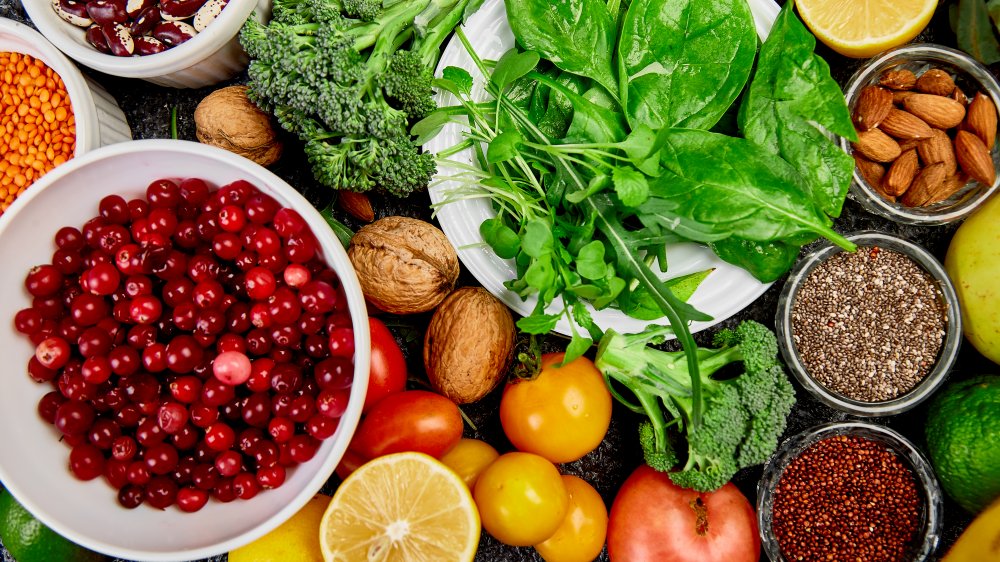Details You Should Know About The Cardiac Diet
Many different diets have taken their turn at the forefront of health and fitness culture these past several years, one of the most common types being low-carb and high-fat for the purpose of weight loss. But those diets, while they may be right for some people, have left others concerned about cardiac health and wondering whether there might be a better balance for both keeping weight at a healthy level and promoting a healthy heart (via Healthline). The cardiac diet was created with these goals in mind, and if you're considering tweaking your diet in this direction, there are a few things you should know.
A 2019 study showed that the diets most able to promote cardiovascular health are the Mediterranean Diet, the Dietary Approaches to Stop Hypertension (DASH) diet, and vegetarian plant-based diets. With these approaches in mind, the cardiac diet emphasizes foods like vegetables, whole grains, and oily fish while limiting processed foods high in sugar, salt, and inflammatory fats (via Medical News Today).
What you should eat on the cardiac diet
Multiple foods are known to promote heart health, so many of your favorites are likely still okay to include in your diet while adding a few more servings of particularly health-promoting foods (via Medical News Today). Plenty of fruits and vegetables are a major staple of this approach to eating. "Eating the rainbow" is an old adage encouraging us to get varied nutrients by eating fruits and veggies of a range of colors: red cabbage, dark leafy greens, bright orange carrots, fresh purple berries, etc. Not only are many of these full of antioxidants and other nutrients, but they also help promote a healthy weight.
Oily fish is another major staple of this diet, as it is high in anti-inflammatory Omega-3 fatty acids, which are known to be excellent for heart health. These fish include salmon, mackerel, herring, lake trout, sardines, and albacore tuna (though if you're pregnant you should avoid tuna due to its higher mercury content).
Nuts, seeds, and legumes are also encouraged for their high nutrition content and healthy balance of good fats, though it is important to base consumption of these on your calorie needs, as they are energy dense. Whole grains are included in this diet as well and are always encouraged over processed grains or flours as they are higher in fiber and other nutrients and therefore create less of a blood sugar spike. Low-fat dairy products can also be included in moderation.
What you should avoid on the cardiac diet
Of course, some things are excluded from the diet, and your are encouraged to limit their consumption or eliminate them altogether. Processed meat, red meat, full-fat dairy, and processed foods high in added sugars or salt should be avoided. Trans fats should be avoided entirely. Try to consume less than 200 milligrams of cholesterol per day, and aim for less than two grams of sodium daily. If you are a drinker, this diet encourages you to limit alcohol consumption to one serving per day for women or two per day for men (via Memorial Sloan Kettering Cancer Center).
The reason these foods are limited or excluded is because too much sodium can increase your blood pressure, leading to hypertension, which is a major risk factor for heart attacks and other issues. Meanwhile, too much unhealthy fat can cause plaque to build in the arteries. Similarly, diets high in processed foods high in added sugars and fats have also been linked to heart disease. So if your goal is to support your cardiovascular health, adding some more oily fish and veggies while cutting back on processed and high-fat foods may be a good step.


